








Ocean Bay Recovery
Verified Center
This provider's information has been quality-checked by Recovery.com's Research Team for accuracy and completeness, including center verification through appropriate third-party organizations.
Treatment Focus
This center treats substance use disorders and co-occurring mental health conditions. Your treatment plan addresses each condition at once with personalized, compassionate care for comprehensive healing.
Primary Level of Care
Offering intensive care with 24/7 monitoring, residential treatment is typically 30 days and can cover multiple levels of care. Length can range from 14 to 90 days typically.
Treatment Focus
This center treats substance use disorders and co-occurring mental health conditions. Your treatment plan addresses each condition at once with personalized, compassionate care for comprehensive healing.
Primary Level of Care
Offering intensive care with 24/7 monitoring, residential treatment is typically 30 days and can cover multiple levels of care. Length can range from 14 to 90 days typically.
Provider's Policy
Ocean Bay Recovery works with most South African insurance plans which can cover up to 100% of treatment after deductibles. Their insurance experts provide a free, confidential benefit verification so you have a clear picture of what the costs of treatment would be at their facility and how to maximize your insurance benefits.
Ocean Bay Recovery
Ocean Bay Recovery
About Ocean Bay Recovery
Ocean Bay Recovery is a private boutique addiction treatment centre in the coastal hamlet of St. Francis Bay, Eastern Cape, just an hour from the nearest international airport in Nelson Mandela Bay. They offer an 8-bed residential programme and an outpatient programme, featuring a highly personalised continuum of care that addresses the physical, emotional, social, and spiritual aspects of addiction. For clients who need to begin with stabilisation, they provide off-site detox for those in need of intensive medical oversight or on-site detox managed by a doctor and two full-time nurses.
Embrace Healing with the Ocean and Nature
Ocean Bay Recovery integrates ocean, beach and other nature-based experiences into treatment, helping clients reconnect with the part of themselves that knew how to have fun before addiction overcame them. Their setting offers access to beaches, hiking trails, rivers and nature reserves connected to the pristine Indian Ocean coastline of Greater St Francis Bay. Nature and ocean therapy form part of their daily programme, with daily morning trips to the beach and longer excursions into nature at least twice weekly.
Balance Individualised Care with Community Support
Ocean Bay Recovery combines the American Society of Addiction Medicine (ASAM) Model and the 12-Step Minnesota Model to provide evidence-based treatment that is both individualised and community-driven. Their personalised treatment plans integrate medical, psychological, and social factors, allowing clients to address addiction and co-occurring mental health issues in one-on-one therapy sessions. At the same time, the structured 12-Step framework fosters a supportive peer community, reinforcing ongoing accountability, self-reflection, and sustainable long-term recovery.
Find Peace in 4-Star Accommodations
Ocean Bay Recovery offers a private, serene retreat just 100 metres from the beach and the scenic Two Harbours Hiking Trail, providing a peaceful setting for healing in nature. Their family homelike facility features private or shared en-suite bedrooms designed for comfort, a spacious open-plan kitchen, and inviting communal areas, including a swimming pool deck, entertainment lapa with pool, darts and table tennis, a gym and BBQ. Clients can relax on the Zen viewing deck overlooking the Indian Ocean.

Highlights from the Center
Highlights
These highlights are provided by and paid for by the center.
Nature Lovers
Customized Treatment Plans
Boutique
Beach Access
Center Overview
Treatment Focus
This center treats substance use disorders and co-occurring mental health conditions. Your treatment plan addresses each condition at once with personalized, compassionate care for comprehensive healing.
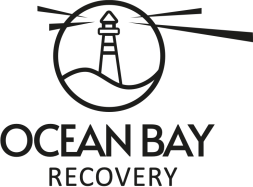
Ocean Bay Recovery
Insurance Accepted
Pricing and Program Length
Estimated Center Costs
The cost listed here (€4,500 - €11,500/month), is an estimate of program cost. Center price can vary based on program and length of stay. Contact the center for more information. Recovery.com strives for price transparency so you can make an informed decision.




Recovery.com Verified Listing
Recovery.com verified that the name, location, contact information and license to operate for this treatment provider are valid and up-to-date.
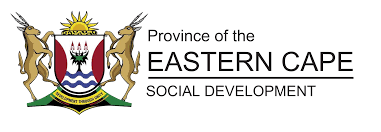
Licensed by Eastern Cape Social Development
Recovery.com is an independent, third-party mental health resource. Verification does not imply endorsement and does not guarantee the quality of treatment services.
Meet Your Care Team

Charles Black
Managing Director
dip. Counselling, advanced dip. Logotherapy

Dr. Malan & Dr. Eilis
General Medicine Practioners

Margie Spicer
Clinical Psychologist
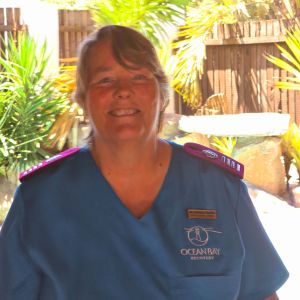
Andrea Peard
Head Nurse
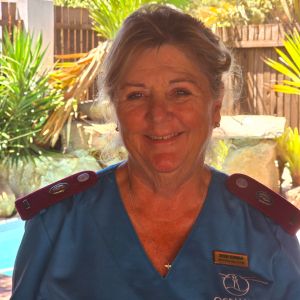
Debbie Burman
Nurse

Wade Inglis
Biokineticist
Master's degree in Human Movement
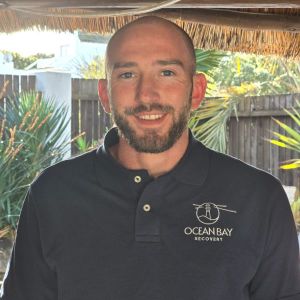
Tony Augustyn
Head Addiction Counselor
Certified Addiction Specialist, dip. Psychosocial Counselling, accreditation ACCSA

Jenny Suter
Social Worker

Daniella Reynolds
Mindfulness and Meditation Practioner
Degree in Psychology, Dip. in Shiatsu

Alison Trew Browne
Pilates Instructor

Vaughn Bam
Administration Manager

Andiswa Didiza
Head Housekeeper
Your Care Options
Specializations
1-on-1 Counseling
Patient and therapist meet 1-on-1 to work through difficult emotions and behavioral challenges in a personal, private setting.
Alcohol
Using alcohol as a coping mechanism, or drinking excessively throughout the week, signals an alcohol use disorder.
Detox
Detox fully and safely removes toxic substances from the body, allowing the next steps in treatment to begin with a clean slate.
Co-Occurring Disorders
A person with multiple mental health diagnoses, such as addiction and depression, has co-occurring disorders also called dual diagnosis.
Cocaine
Cocaine is a stimulant with euphoric effects. Agitation, muscle ticks, psychosis, and heart issues are common symptoms of cocaine abuse.
Drug Addiction
Drug addiction is the excessive and repetitive use of substances, despite harmful consequences to a person's life, health, and relationships.
Personalized Treatment
The specific needs, histories, and conditions of individual patients receive personalized, highly relevant care throughout their recovery journey.
Twelve Step
Incorporating spirituality, community, and responsibility, 12-Step philosophies prioritize the guidance of a Higher Power and a continuation of 12-Step practices.
Who We Treat
Older Adults
Addiction and mental health treatment caters to adults 55+ and the age-specific challenges that can come with recovery, wellness, and overall happiness.
Executives
Executive treatment programs typically directly support the needs of people who manage businesses and may provide flexible schedules and office space to allow work during treatment.
Young Adults
Emerging adults ages 18-25 receive treatment catered to the unique challenges of early adulthood, like college, risky behaviors, and vocational struggles.
LGBTQ+
Addiction and mental illnesses in the LGBTQ+ community must be treated with an affirming, safe, and relevant approach, which many centers provide.
Men and Women
Men and women attend treatment for addiction in a co-ed setting, going to therapy groups together to share experiences, struggles, and successes.
Midlife Adults
For adults ages 40+, treatment shifts to focus on the unique challenges, blocks, and risk factors of their age group, and unites peers in a similar community.
Mild Disabilities
Adults with mild physical or intellectual disabilities receive treatment catered to their specific needs in a safe and clinically supportive environment.
Treatment Services
Recovery Coaching
A support service designed to help individuals identify and maintain their personal recovery goals, provide guidance and support, and connect them with recovery resources and community-based services.
Detox
Detox fully and safely removes toxic substances from the body, allowing the next steps in treatment to begin with a clean slate.
Intensive Family Program
Some rehabs offer intensive programs for loved ones. Group and individual therapy sessions help everyone heal, and improve family dynamics.
Intensive Outpatient Program
In an IOP, patients live at home or a sober living, but attend treatment typically 9-15 hours a week. Most programs include talk therapy, support groups, and other methods.
Outpatient
During outpatient rehab, patients attend a structured treatment program while continuing to live at home.
Residential
In a residential rehab program, patients live onsite, with access to daily treatment and 24-hour care. An average stay is 30-90 days.
Sober Living
These structured living environments help people transition out of rehab. Residents have more freedom than they do during rehab, but still follow certain rules.
Approaches
Evidence-Based
A combination of scientifically rooted therapies and treatments make up evidence-based care, defined by their measured and proven results.
Holistic
A non-medicinal, wellness-focused approach that aims to align the mind, body, and spirit for deep and lasting healing.
Personalized Treatment
The specific needs, histories, and conditions of individual patients receive personalized, highly relevant care throughout their recovery journey.
Twelve Step
Incorporating spirituality, community, and responsibility, 12-Step philosophies prioritize the guidance of a Higher Power and a continuation of 12-Step practices.
Therapies
1-on-1 Counseling
Patient and therapist meet 1-on-1 to work through difficult emotions and behavioral challenges in a personal, private setting.
Meditation & Mindfulness
A practiced state of mind that brings patients to the present. It allows them to become fully aware of themselves, their feelings, and the present moment.
Trauma-Specific Therapy
This form of talk therapy addresses any childhood trauma at the root of a patient's current diagnosis.
Online Therapy
Patients can connect with a therapist via videochat, messaging, email, or phone. Remote therapy makes treatment more accessible.
Rational Emotive Behavior Therapy
A type of cognitive therapy that identifies negative self-defeating thoughts and behaviors, rewriting beliefs to be positive, empowering, and present.
Mindfulness Therapy
This ancient practice can be mental, emotional, and even spiritual. In meditation, you focus your attention on the present moment without judgement.
Adventure Therapy
This experiential approach uses the physical and emotional challenges of outdoor activities as tools for personal growth.
Art Therapy
Visual art invites patients to examine the emotions within their work, focusing on the process of creativity and its gentle therapeutic power.
Conditions We Treat
Pornography Addiction
A person with a porn addiction is emotionally dependent on pornography to the point that it interferes with their daily life and relationships.
Anger
Although anger itself isn't a disorder, it can get out of hand. If this feeling interferes with your relationships and daily functioning, treatment can help.
Anxiety
Anxiety is a common mental health condition that can include excessive worry, panic attacks, physical tension, and increased blood pressure.
Burnout
Burnout entails mental and physical exhaustion, and leads to a severe lack of fulfillment. This condition is often caused by overwork.
Codependency
Codependency is a pattern of emotional dependence and controlling behavior. It's most common among people with addicted loved ones.
Depression
Symptoms of depression may include fatigue, a sense of numbness, and loss of interest in activities. This condition can range from mild to severe.
Gambling
Excessive, repetitive gambling causes financial and interpersonal problems. This addiction can interfere with work, friendships, and familial relationships.
Gaming
Compulsive gaming is most often a problem for children and teens. The disorder can affect physical health, sleep, and the ability to focus at school.
Substances We Treat
Alcohol
Using alcohol as a coping mechanism, or drinking excessively throughout the week, signals an alcohol use disorder.
Benzodiazepines
Benzodiazepines are prescribed to treat anxiety and sleep issues. They are highly habit forming, and their abuse can cause mood changes and poor judgement.
Chronic Relapse
Consistent relapse occurs repeatedly, after partial recovery from addiction. This condition requires long-term treatment.
Co-Occurring Disorders
A person with multiple mental health diagnoses, such as addiction and depression, has co-occurring disorders also called dual diagnosis.
Cocaine
Cocaine is a stimulant with euphoric effects. Agitation, muscle ticks, psychosis, and heart issues are common symptoms of cocaine abuse.
Drug Addiction
Drug addiction is the excessive and repetitive use of substances, despite harmful consequences to a person's life, health, and relationships.
Ecstasy
Ecstasy is a stimulant that causes intense euphoria and heightened awareness. Abuse of this drug can trigger depression, insomnia, and memory problems.
Heroin
Heroin is a highly addictive and illegal opioid. It can cause insomnia, collapsed veins, heart issues, and additional mental health issues.
Psychedelics
Hallucinogenic drugs—like LSD—cause euphoria and increased sensory experiences. When abused, they can lead to depression and psychosis.
Languages
Aftercare
Care Designed for Your Needs
Personal Amenities
Amenities
Special Considerations
Center Pets
Addiction and mental health facilities with pets allow patients to interact with friendly dogs, cats, horses, and in some cases, even dolphins.
Flexible technology policies
Centers with flexible technology policies allow professionals to stay in touch with work and give patients a greater sense of connection and normalcy.
Healthy Meals are provided
Great food meets great treatment, with providers serving healthy meals to restore nutrition, wellbeing, and health.
Activities
Yoga
Yoga is both a physical and spiritual practice. It includes a flow of movement, breathing techniques, and meditation.
Off-Site Activities
Off-Site Amenities
Learn More About the Center
The Importance of Aftercare
Learn how aftercare prevents relapse and supports long-term sobriety.
Healing Families Impacted by Addiction
Discover how families can heal and rebuild trust together.
Building Resilience through Group Therapy
Read about the profound impact of shared experiences and mutual support.
The “Work Hard, Play Hard” Approach to Recovery
Find out how structure and joy go hand in hand for long-term sobriety.
What people are saying
Treatment
4.9
Accommodations
5.0
Food & Nutrition
5.0
Value
4.8
Pros
- Supportive Aftercare (7)
- Friendly & Competent Staff (6)
- Access to Nature (5)
- Addressed Trauma (5)
Jo
Treatment in 2024 • (7 days) • Reviewed 06/20/25
Former Client
•Strategic Planner
•South Africa
Lee Stephen Ryan
Reviewed 06/23/25
Referring Professional
Seth
Treatment in 2024 • (90 days) • Reviewed 06/20/25
Former Client
•South Africa
A.A.W
Treatment in 2024 • (4 months) • Reviewed 06/25/25
St. Francis Bay
Harry
Treatment in 2024 • (90 days) • Reviewed 06/26/25
Chef
•London





